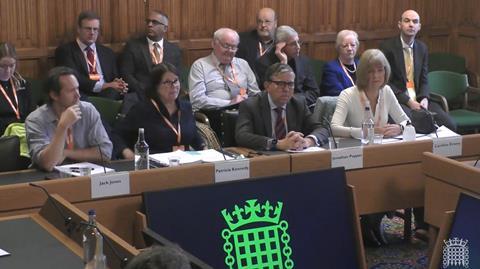Amid future-focused reforms and new types of pension schemes, Pensions Expert editor Nick Reeve argues that we must not ignore the mistakes of the past if the industry’s efforts are to succeed.
“We still rely a lot on people having trust in the [pensions] system… Anything like this that undermines that trust is damaging for the system as a whole, not just the people in this position.”
Jack Jones’ comment at the end of his evidence session before the Work and Pensions Committee on Wednesday is a sentiment with which I think most of us in the pensions industry would agree.

The Trades Union Congress’s pensions policy guru was sitting alongside three representatives of campaign groups that have been fighting for years to persuade their former employers to finance pension increases so their retirement funds can keep pace with inflation.
As Pensions Expert has covered over the past few weeks, campaigners and MPs are working to raise awareness of this and other issues, including the lack of pre-97 indexation affecting members of the Pension Protection Fund (PPF) and Financial Assistance Scheme (FAS). This week, Liberal Democrat MPs tabled an amendment to the Pension Schemes Bill seeking an inquiry into the AEA Technology case, which we and other news organisations have covered over the past few years.
Reforms contained in the Pension Schemes Bill are rightly focused on the future of the UK’s pension system. But we cannot forget the past, either. How do we expect current and future generations of workers to lock away more money for their retirement if their parents or grandparents are facing increasing hardship due to perceived broken promises?
I use the word “perceived” because no one involved in any of these cases has broken the law. Discretionary increases are exactly that – increases made at the discretion of the trustees. The PPF and FAS are paying compensation to members as laid out in law. Even in the case of AEA Technology, by the letter of the law, the pension scheme was in the private sector and was in the PPF’s jurisdiction. (More background on that story here.)
But while each of these cases is different, with its own nuances and difficulties, there are two overarching issues. One is moral: people feel they were promised certain pension outcomes that have not transpired, and there is money available to compensate them (although perhaps not in all cases).
The other issue, as Jack Jones pointed out this week, is one of trust. We must, as an industry, learn lessons from each of these cases to preserve (or perhaps restore) trust in our retirement system.
We should not make promises we can’t deliver on. We should be open and honest in communications, especially when we know that some people could lose out. And we should put ourselves in the shoes of the individuals affected – how would we feel in their position? And would we accept the arguments or solutions being presented?
These questions are important to consider as we contemplate a completely new type of pension, in the form of collective defined contribution (CDC) schemes. The CDC concept sounds great, but successful delivery hinges on people understanding what it is and what it is not.
It is within the grasp of the industry and policymakers to fix at least some of these issues, and be the pension heroes. Let’s not leave it until it is too late.
Nick Reeve is editor of Pensions Expert.
This editorial is a longer version of the column that initially appeared in Pensions Expert’s Friday Takeaway email, summarising the biggest news of the week and the latest appointments. To sign up, please register for free.

























